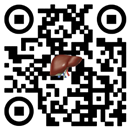Hepatitis A Vaccination (英文)
What is hepatitis A?
Hepatitis A is one type of viral hepatitis. In general, it is transmitted by eating contaminated and improperly cooked food, especially shellfish. Contaminated water or other beverages can also transmit the infection. Whereas hepatitis A is a relatively mild disease in children, it is more serious in adults, causing fever, fatigue, muscle pains, loss of appetite, nausea, diarrhoea, jaundice and tea-coloured urine. In a few cases, the liver may be severely affected but mortality due to hepatitis A is rare.
People who have been naturally infected are immune to the disease for the rest of their lives.
Is it a serious problem in Hong Kong
As sanitary standards and living conditions gradually improve, hepatitis A is no longer a common disease in Hong Kong. Cases of hepatitis A reported to the Department of Health average about a few hundred annually. Since the majority of those below 30 years of age have never been exposed to hepatitis A, a significant proportion of our population are susceptible. Under these circumstances, an epidemic of hepatitis A might easily occur if we happen to relax our hygiene standards.
How can we prevent hepatitis A?
To effectively prevent hepatitis A, you need to pay close attention to personal, food and environmental hygiene.
Personal hygiene-
- wash your hands before preparing or eating food
- remember to flush the toilet and wash your hands before you leave the restroom
Food hygiene-
- drink only boiled water
- all food, especially shellfish, should be thoroughly cleaned and well cooked. (The hepatitis A virus dies within five minutes at 100o C)
- do not contaminate cooked food with your unwashed hands or unclean water
Environmental hygiene-
- handle contaminated water and sewage properly
- store your drinking water in clean and properly topped containers to avoid contamination
- keep cooking utensils and tableware clean
In addition, vaccination against hepatitis A is effective in preventing the infection.
What is hepatitis A vaccination?
The hepatitis A vaccine is essentially an inactivated form of the virus, approved for use as a vaccine in people above 2 years of age. On injection into the deltoid muscle, the vaccine stimulates the production of antibodies against the hepatitis A virus. The success rate exceeds 94%. Many believe that the immunity which results can last for more than 10 years.
Do I need the hepatitis A vaccine?
To date there is no firm evidence to help decide who must get the vaccine. The following are some of the factors that you should consider before you decide whether the vaccine is appropriate for you.
- most people in Hong Kong who are above 40 have already been exposed to hepatitis A and therefore immune to the virus
- frequent travellers to places where hepatitis A is highly endemic run the risk of consuming contaminated water and food and getting infected
- people who have the habit of eating uncooked shellfish stand a higher chance of being infected
- date abroad indicate that homo-and bi-sexuality are risk factors of the infection
- infected workers of the food industry, eg. restaurant attendants and chefs, have the potential of spreading the infection if they are not careful with personal, food or environmental hygiene
How is the vaccine administered?
To induce immunity, the vaccine has to be administered twice, into the deltoid muscle. The second injection is given 6-12 months after the first.
How good is the protection offered by vaccination?
Vaccination takes one month before immunity appears, and it takes two injectionsto achieve a long-lasting effect. Protection against infection is good but also specific. No other infectious agent but hepatitis A is prevented. In fact, quite a few infections are transmitted in the same way as hepatitis A,eg. cholera, dysentery, typhoid, Salmonella food poisoning, and numerous parasites. To effectively prevent all of these infections, one must maintain good personal, food and environmental hygiene.
Where can I get the vaccination?
If you think that hepatitis A vaccination suits your needs, please ask your family doctor for arrangement of injections.
What if I think I have got hepatitis A?
If you suspect hepatitis A,
- Consult your doctor and consider blood tests
- Do not take over-the-counter medications without the doctor's advice
- Abstain from alcohol
- Be extra careful in maintaining your personal and food hygiene to avoid transmitting the infection to others
- 相关内容延伸阅读 ⇓
- 01. 甲肝患者情绪调理方法有哪些?学会发泄情绪理性释放怒气11821
- 02. 甲肝疫苗怎样接种呢12702
- 03. 警惕甲肝会带来的6个伤害12298
- 04. 应该如何预防甲肝呢?11065
- 05. 甲肝不需要过多用药!9858
- 06. 准妈妈如何预防甲肝13939
热门阅读
- 01. 6步彻底治疗脂肪肝
- 02. 预防肝硬化并发症 饮食是重要环节
- 03. 乙肝孕期注射乙肝免疫球蛋白有用吗?
- 04. 丙肝的传播途径和治疗
- 05. 酒精肝的症状和并发症
- 06. 孕妇甲胎蛋白升高正常吗?
- 07. 警惕!肝硬化合并败血症
- 08. 肝癌预防要做三个筛查 治疗可用手术根治治疗
- 09. “身心调护”防肝硬化
- 10. 乙肝汤粥茶保健食谱
图片推荐

面色发黑是怎么回事?
面色发黑是怎么回事?日常生活中我们会见到很多人的面色发黑,其中很多都是肝病患者,这是为什么呢?面色发黑是怎么回事?我们来简单了解一下。 面色发黑是肝病面容的一种典型表现,特点为面部皮肤色泽逐渐变暗,

乙肝大三阳孕妇能顺产吗?
河北的杨先生打来电话咨询:说妻子马上就要生产了,但家人一直都在犹豫该选择哪种生产方式(主要是因为妻子患有多年乙肝大三阳),所以想问问乙肝大三阳孕妇能顺产吗? 乙肝大三阳孕妇能顺产吗?专家表示:乙肝大

安钧璨为何年仅32岁就会得肝癌?
可米小子安钧璨逝世时年仅32岁,为何年纪轻轻就会患上肝癌呢? 据了解安钧璨原本就是乙型肝炎病毒携带者,有肝硬化的病史,2013年已被诊断出患有肝癌,但是当时体内仅有一、两颗肿瘤,后来经治疗病情也获得

如何判断自己是否患有乙肝?
咨询:本人前段时间曾不小心接触过,一名乙肝患者的血液,事后虽已接种乙肝免疫球蛋白,但我现在还是很担心自己已被传染,所以想问问各位专家如何判断自己是否患有乙肝呢? 如何判断自己是否患有乙肝?专家表示:

乙肝患者贫血吃什么好?
最近气色不是很好,去医院检查,医生说我贫血,不太严重,建议我在饮食上多吃些补血的食物,但食疗这块不太了解,出现贫血应该吃什么?乙肝患者贫血吃什么好? 鉴于上述患者的疑问,肝病专家指出:乙肝患者本身就

安全套能阻止乙肝病毒的传播吗?
避孕套能不能阻止乙肝病毒的传播?乙肝病毒除了血液传播以及母婴传播外,性传播也是非常重要的一个传播途径。很多患者担心进行性生活时会传染给配偶。那么,安全套能阻止乙肝病毒的传播吗?对此,我们特邀肝病医院专

喝酒会导致转氨酶升高吗?
咨询:昨天去医院做体检,结果发现肝功能转氨酶高出了正常水平,我很不解之前没有任何疾病史,为什么转氨酶会突然升高呢?有没有可能与我检查前一晚喝酒有关?所以想再问问各位专家喝酒会导致转氨酶升高吗? 喝酒

复旦等揭开乙肝病毒体内生活方式 乙肝难愈原因找到了
复旦大学上海医学院医学分子病毒学重点实验室袁正宏课题组、市公共卫生临床中心科研人员等合力攻关,通过长期研究,揭示了乙肝长期迁延不愈的根本原因,同时监测到慢性乙肝抗病毒治疗后cccDNA清除情况。相关研


